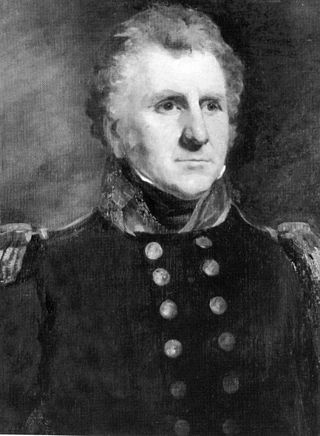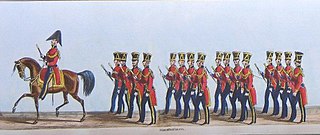
The Lord Steward or Lord Steward of the Household is one of the three Great Officers of the Household of the British monarch. Historically the Lord Steward presided over the Household Below Stairs, and by tradition he takes precedence over all other officers of the household. Holders of the office are always peers; until 1924 they were always members of the Government, and until 1782 the office was one of considerable political importance and carried Cabinet rank. Lord Stewards presided at the Board of Green Cloth, until the Board of Green Cloth disappeared in the reform of local government licensing in 2004.

The Lord Chamberlain of the Household is the most senior officer of the Royal Household of the United Kingdom, supervising the departments which support and provide advice to the Sovereign of the United Kingdom while also acting as the main channel of communication between the Sovereign and the House of Lords. The office organises all ceremonial activity such as garden parties, state visits, royal weddings, and the State Opening of Parliament. They also oversee the Royal Mews and Royal Travel, as well as the ceremony around the awarding of honours.
The Dean of the Chapel Royal, in any kingdom, can be the title of an official charged with oversight of that kingdom's chapel royal, the ecclesiastical establishment which is part of the royal household and ministers to it.

The Groom of the Stool was the most intimate of an English monarch's courtiers, initially responsible for assisting the king in excretion and hygiene.

The Keeper of the Privy Purse and Treasurer to the King/Queen is responsible for the financial management of the Royal Household of the Sovereign of the United Kingdom. The officeholder is assisted by the Deputy Treasurer to the King/Queen for the management of the Sovereign Grant, currently Sally O'Neill.

The Master of the Household is the operational head of the "below stairs" elements of the Royal Households of the United Kingdom. The role has charge of the domestic staff, from the Royal Kitchens, the pages and footmen, to the housekeeper and their staff. The appointment has its origin in the household reforms of 1539-40; it is under the supervision of the Lord Steward.
The Royal Almonry is a small office within the Royal Households of the United Kingdom, headed by the Lord High Almoner, an office dating from 1103. The almoner is responsible for distributing alms to the poor.

The Vice-Chamberlain of the Household is a member of the Royal Household of the Sovereign of the United Kingdom. The officeholder is usually a senior government whip in the British House of Commons ranking third or fourth after the Chief Whip and the Deputy Chief Whip. The Vice-Chamberlain is the Deputy to the Lord Chamberlain of the Household and, like the Lord Chamberlain, carries a white staff of office when on duty on state occasions.
Physician to the King is a title held by physicians of the Medical Household of the Sovereign of the United Kingdom. Part of the Royal Household, the Medical Household includes physicians, who treat general conditions, and extra physicians, specialists who are brought in as required.

Admiral Sir Charles Adam was a Scottish Royal Navy officer and politician who served during the Napoleonic Wars. He later commanded the royal yacht, Royal Sovereign, and was the Member of Parliament for Clackmannanshire and Kinross-shire. He held the office of First Naval Lord three times. In that capacity he dealt ably with the economies of a peacetime budget, provided naval support for the expulsion of Muhammad Ali's forces from Syria in 1840 and ensured technological progress continued. He was also the father of William Patrick Adam, a colonial administrator and Liberal politician.
Groom of the Chamber was a position in the Household of the monarch in early modern England. Other Ancien Régime royal establishments in Europe had comparable officers, often with similar titles. In France, the Duchy of Burgundy, and in England while French was still the language of the court, the title was varlet or valet de chambre. In German, Danish and Russian the term was "Kammerjunker" and in Swedish the similar "Kammarjunkare".
The Master of the Robes is an office in the British Royal Household. He is responsible for the King's robes at times such as a coronation, the annual Order of the Garter service and the State Opening of Parliament. Since the reign of King Edward VII, the office has only been filled for coronations. Below is a list of known office holders:
Gentleman of the Bedchamber was a title in the Royal Household of the Kingdom of England from the 11th century, later used also in the Kingdom of Great Britain. A Lord of the Bedchamber was a courtier in the Royal Household; the term being first used in 1718. The duties of the Lords and Gentlemen of the Bedchamber originally consisted of assisting the monarch with dressing, waiting on him when he ate, guarding access to his bedchamber and closet and providing companionship. Such functions became less important over time, but provided proximity to the monarch; the holders were thus trusted confidants and often extremely powerful. The offices were in the gift of The Crown and were originally sworn by Royal Warrant directed to the Lord Chamberlain.

Sir Francis Henry Laking, 1st Baronet, was an English physician who was Surgeon-Apothecary in Ordinary to Queen Victoria, and Physician-in-Ordinary to King Edward VII and King George V.

The Knight Marshal is a former office in the British Royal Household established by King Henry III in 1236. The position later became a Deputy to the Earl Marshal from the reign of King Henry VIII until the office was abolished in 1846.

Field Marshal Sir Samuel Hulse, GCH was a British Army officer. He saw his first active duty during the Gordon Riots in June 1780 before commanding the 1st Battalion of the 1st Regiment of Foot Guards at key battles of the Flanders Campaign during the French Revolutionary Wars. He also commanded the 1st Guards Brigade at a later battle and then joined the retreat into Germany during the closing stages of the Flanders Campaign. He later took part in the Anglo-Russian invasion of Holland and then returned to England to become General Officer Commanding South East District. After completing active service in the Army, he served in the household of King George IV.
The Governor of Pendennis Castle was a military officer who commanded the fortifications at Pendennis Castle, part of the defences of the River Fal and Carrick Roads, on the south coast of Cornwall near Falmouth. Originally fortified under Henry VIII, defences in the area were intermittently maintained until after the Second World War. The office of governor was abolished in 1837, when Gen. Anderson received the colonelcy of the 78th Regiment of Foot.
The Clerk Marshal was an official of the British Royal Household in the department of the Master of the Horse. From the Restoration the office was held with that of Avenor until the latter post was abolished in 1793. The office of Clerk Marshal was then combined with that of First or Chief Equerry until 1874. From 1841 the holder was a member of the Government, but the office ceased to be a political one from 1866.

The Board of Ordnance in the Kingdom of Ireland (1542–1800) performed the equivalent duties of the British Board of Ordnance: supplying arms and munitions, overseeing the Royal Irish Artillery and the Irish Engineers, and maintaining the fortifications in the island.

Sir William Franklin FRS KB KCH (1763–1833) was an English surgeon and Fellow of the Royal Society.










